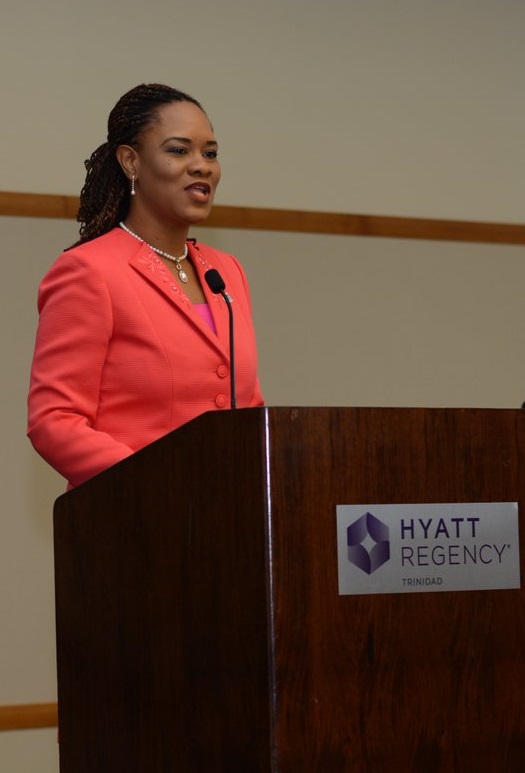
NACC Trinidad and PAHO build capacity in HIV Combination Prevention
The Office of the Prime Minister, National AIDS Coordinating Committee (NACC), Republic of Trinidad and Tobago in collaboration with the Pan American Health Organization hosted an HIV Combination Prevention Meeting with national partners in September 2018.
The main objective of the meeting was to strengthen and enhance the national capacity to provide comprehensive HIV/STIs services for adults and adolescents.
The Honourable Ayanna Webster-Roy, Minister of State in the Office of the Prime Minister in her feature address at the opening ceremony stated that “the empowerment of citizens to their sexual and reproductive health essentials, requires that we look at all the systems that need to be put in place to ensure that the policies, facilities, education, services, and community support are available to prevent and control the spread of HIV and other Sexually Transmitted Infections”.
She emphasized that everyone has a part to play and that all stakeholders can support the NACC to achieve its mandate to end AIDS by 2030 by reducing the population’s susceptibility to HIV and AIDS.
Dr. Eldonna Boisson, PAHO Country Representative stated that we know of the ambitious elimination goals for HIV/STI and that these goals require an accelerated response to HIV and STIs. She indicated that in order to achieve these goals, high-impact intervention, technologies and approaches were needed. She called for “focused actions tailored to the needs of key populations”.
Dr. Ayanna Sebro, Technical Director, NACC Secretariat in her address emphasized the need to “consider opportunities for the prevention of other sexually transmitted infections, gender-based violence, poverty, social determinants and other matters that affect the sexual and reproductive health and rights of the citizens of Trinidad and Tobago within one service”. She noted that this type of integrative approach is one that will not only benefit the clients but will also improve the efficiency of services.
Over three days, participants addressed the opportunities to collaborate, partner and create synergies to promote institutional innovation and effectiveness for service delivery, intervention, treatment and prevention of HIV and STIs. The Meeting agreed that collaboration is key to ensuring that the most vulnerable populations have access to HIV prevention.
WHAT IS PANCAP?
PANCAP is a Caribbean regional partnership of governments, regional civil society organisations, regional institutions and organisations, bilateral and multilateral agencies and contributing donor partners established on 14 February 2001. PANCAP provides a structured and unified approach to the Caribbean’s response to the HIV epidemic, and coordinates the response through the Caribbean Regional Strategic Framework on HIV and AIDS to maximise efficient use of resources and increase impact, mobilise resources and build the capacity of partners.
What are the Global AIDS Strategy 2021–2026 targets and commitments?
If targets and commitments in the strategy are achieved:
- The number of people who newly acquire HIV will decrease from 1.7 million in 2019 to less than 370 000 by 2025
- The number of people dying from AIDS-related illnesses will decrease from 690 000 in 2019 to less than 250 000 in 2025.
- The goal of eliminating new HIV infections among children will see the number of new HIV infections drop from 150,000 in 2019 to less than 22,000 in 2025.
What are the 95-95-95 Targets for ending AIDS?
- 95% of People Living with HIV know their HIV status;
- 95% of people who know their status on treatment; and
- 95% of people on treatment with suppressed viral loads.
HELPFUL LINKS:
Global AIDS Strategy 2021–2026, End Inequalities, End AIDS
https://pancap.org/pancap-documents/global-aids-strategy-2021-2026-end-inequalities-end-aids/
Caribbean Regional Strategic Framework on HIV and AIDS (CRSF) 2019-2025
https://pancap.org/pancap-documents/caribbean-regional-strategic-framework-2019-2025/
